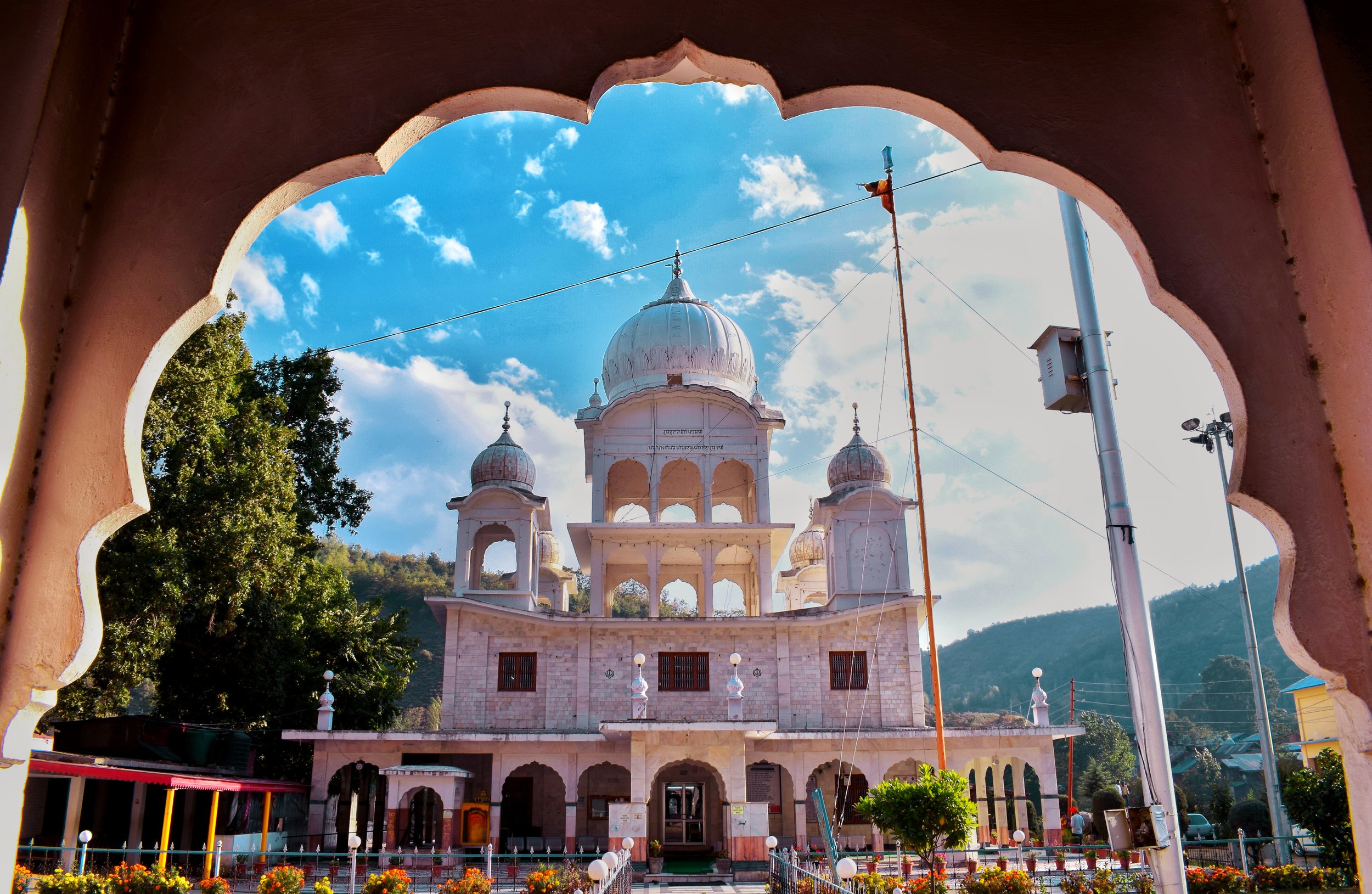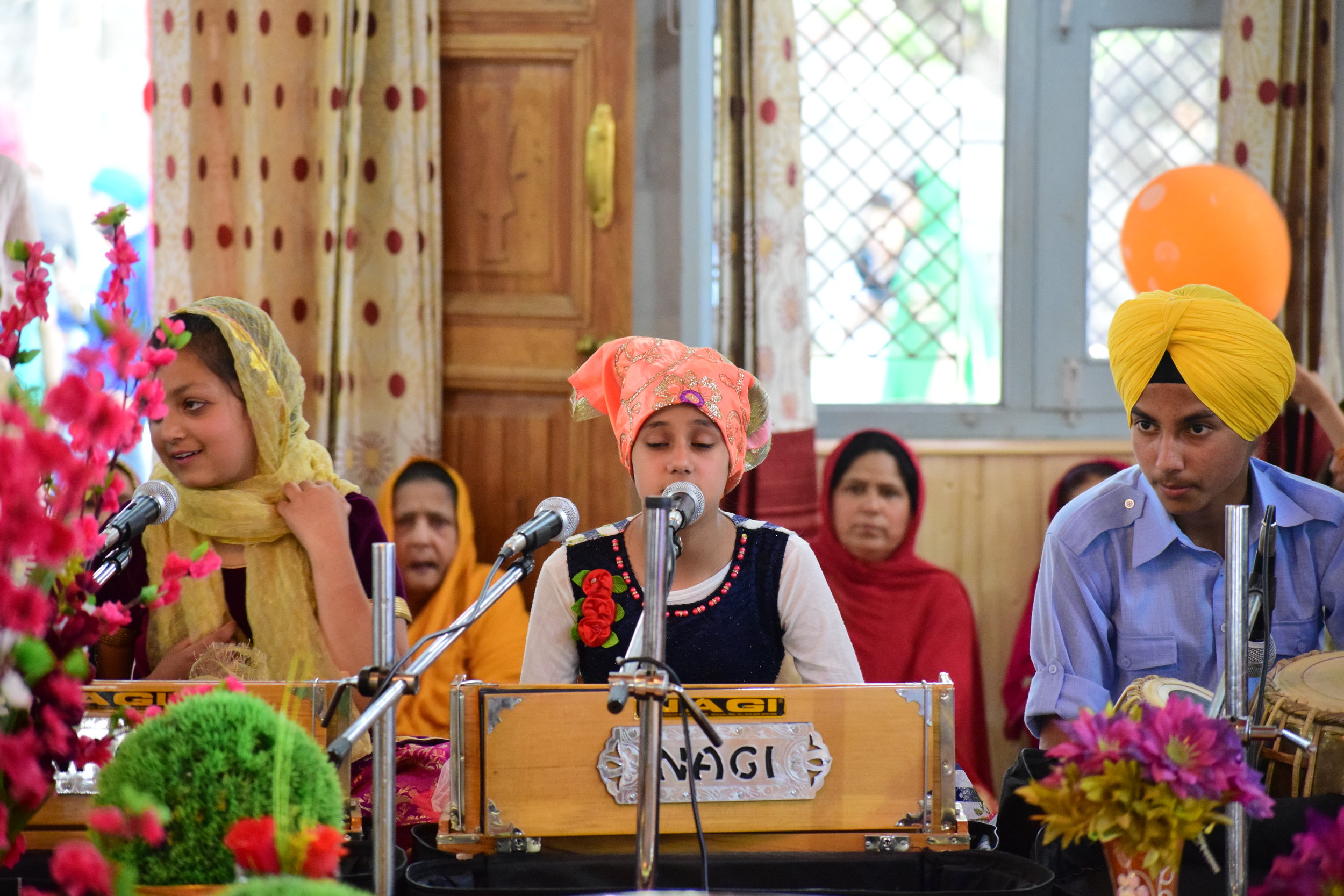Why Kashmir’s small Sikh community boycotted Indian elections
Young Sikhs feel dejected due to the broken promises by successive regimes. Sikhs say they are witnessing silent migration towards other Indian states due to lack of jobs for minorities in the state. Photo by Karanjeet Singh.
DELHI, India — On Jan. 4, a 24-year-old Sikh man was shot dead in Kashmir. In the run-up to India’s general election this month, militant organizations run by Kashmiri Muslims pushing for a separate state or merger with Pakistan had been threatening Sikh village heads to resign from south Kashmir’s Pulwama district, one of the most conflict-ridden areas of the state.
The threatening letters had warned that if the Sikh leaders participated in “pro-India activities”, they and their families would be killed. The slain Simranjeet Singh was the younger brother of the Khasipora village head, who resigned in mass with all other Sikh village heads in the district six days after the murder. The letters also insisted that Sikhs desist from participating in elections.
And desist, they did. But not just out of fear. Sikh leaders in Kashmir called for an all-out boycott of elections to try to highlight their discrimination.
“We have decided to not participate in the Lok Sabha elections as a mark of protest,” Chairman of All Parties Sikh Coordination Committee, Jagmohan Singh Raina said in a press statement. “This is our silent way of conveying that we are angry and have not been treated well.”
Gurudwara Shri Chatti Patashi Sahib is situated in the hills in Baramulla, Kashmir, on the bank of the river Jhelum. Devoted to Shri Guru Hargobind Singh Ji, thousands of devotes visit the place to offer prayers every year. Photo by Karanjeet Singh.
The votes of this ethnic and religious minority, less than one percent of Kashmir’s population, may not seem like a big concern. But Kashmir has a notoriously low voter participation rate, with only about 20 percent voter turnout this year, and a tumultuous history with suspected election rigging. Pulwama reported less than three percent voter turnout, one of the lowest in the state’s history. Though there aren’t numbers on how many Sikhs voted, they anecdotally say the community stayed away from the polls.
“At a place where there is a marginal voter turnout, even a single vote makes a huge difference and that is the reason why the participation of the Sikh community is important in the election process,” said Pardeep Singh, an unemployed youth with a masters in economics.
He believes the unemployment he faces is due to discrimination against Sikhs. Many religious, ethnic and caste-based groups request government reservations for their group in the job market and universities. And while some leaders, like former Chief Minister of Jammu and Kashmir Mehbooba Mufti, campaigned in 2014 on promises of Sikh reservations in government jobs and including their Punjabi language in schools, these aims haven’t made it into practice.
“The same people who promised us jobs fought against us in the civil court when we appealed for reservation in jobs,” Pardeep said.
Sikh students play basketball at Kashmir University in Srinagar, the state capital. Sikhs are advocating for a Punjabi department at Kashmir University, a special government job package for Kashmiri Sikhs and democratic representation they feel shut out of. Photo by Karanjeet Singh.
India’s general election ended Sunday with exit polls predicting Prime Minister Narendra Modi’s Bhartiya Janata Party (BJP) will sweep an even bigger majority in parliament than his election in 2014.
Kashmir, administered in parts by India, Pakistan and China, and India’s most heavily concentrated Muslim population, became the center of election campaigns after a jihadist bomber killed 49 Indian security officers in Pulwama Feb. 14. In response, India conducted air strikes in Pakistan, without Pakistan’s permission.
Modi’s perceived powerful counterattack (satellite images showed no bombing at the Islamist camp Modi claimed to have hit) likely helped the BJP gain votes in the north Indian heartland. But the election rhetoric, as well as a likely second term for Modi, is stoking fears of further violence in Kashmir, long plagued with atrocities like disappearances, rapes and murders allegedly by the Indian army against Kashmiri separatist sympathizers.
Kashmiri Sikhs were among the first to be killed in the state’s invasion by Pakistani tribesmen in 1947, during India’s partition from Pakistan where Muslims and Hindus crossed to settle in Pakistan and India respectively.
After India militantly squashed the popular movement in the eighties against their rule in Kashmir, Sikhs have been pushing for a peaceful resolution of the 71-year-long conflict.
Sikh men walk in a park. Sikhs have protested against the state and federal governments for job reservations without any success so far. Photo by Karanjeet Singh.
The region is witnessing a fresh wave of militancy with official figures suggesting around 200 Muslim youth joined militant organizations in 2018 to fight against state forces.
Vijay Singh, an engineering student from Pulwama, said that the conflict is masking the valley’s social issues, like discrimination against Sikhs.
“The government in Delhi is not even aware that Sikhs also live in Kashmir,” he said.
Kashmiri Sikhs also bring up cases like in 2008 and 2010, when letters were dropped in gurudwaras asking Sikhs to leave Kashmir Valley, separatists issued a statement blaming Indian agencies.
A young Kashmiri Sikh girl recites hymns during the celebrations of Guru Hargobind Singh’s birthday. Photo by Karanjeet Singh.
“We have no representation in the power structure of the state,” said Nidhan Singh, a community rights activist working for more government recognition of the Punjabi language in Kashmir.
“Despite facing difficulties during the tough times in the state, it is the responsibility of the state to fulfill our genuine demands,” he said.
And while the government is talking about state elections, it has failed to provide a sense of security to those already elected, said Raina, of the All Parties Sikh Coordination Committee (APSCC).
After the APSCC issued a press statement that people across the political spectrum should condemn the killing of the Sikh youth, the Joint Resistance Leadership (an alliance of separatist leaders) also denounced the killing.
While the few Sikh leaders associated with pro-Indian parties did not openly admit that resentment against successive governments has kept Sikhs out of polling stations, they seemed to have little faith in the government, which will post election results on May 23.





